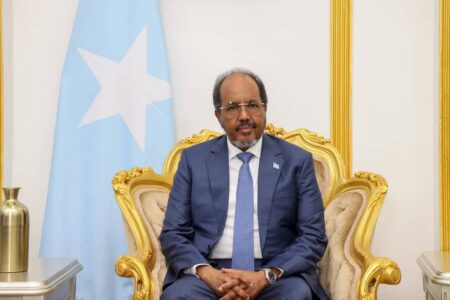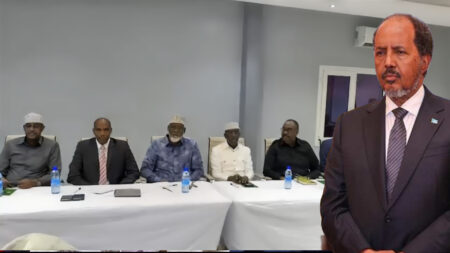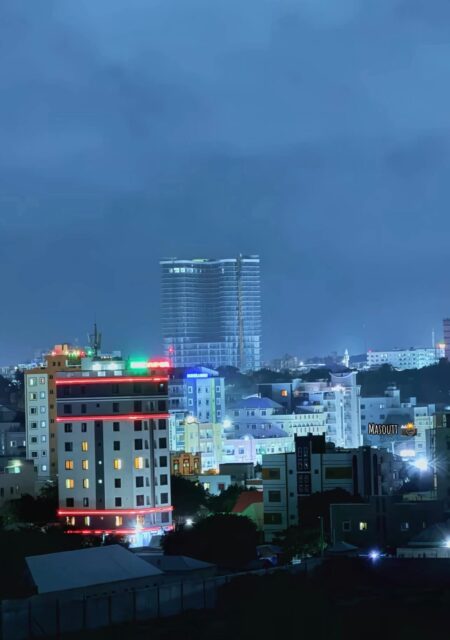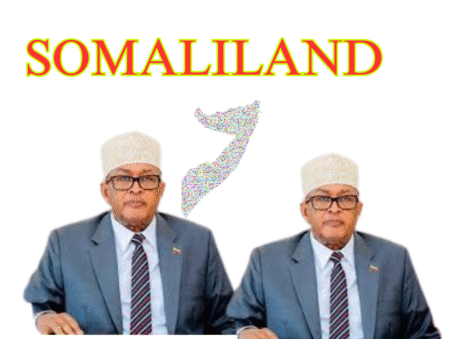Mogadishu is a city that forgets nothing. It may forgive, move forward, and rebuild after every tragedy, but it does not forget the years that nearly broke it. This is why the sudden return of former President Mohamed Abdullahi Farmaajo on 13 November 2025 struck a nerve far deeper than mere politics. It reopened a memory that the city has carried in silence: the years between 2017 and May 2022, when explosions, fear, and uncertainty shaped the rhythm of daily life.
During that period, Mogadishu lived under a shadow that citizens still describe with unease: car bombs, assassinations, and an atmosphere of intimidation defined the era. Families survived day by day, measuring danger before stepping out of their homes. Journalists were silenced. Opposition voices were threatened. Public trust deteriorated. And when the horrific tragedy of Zobe hit the city, the grief was so overwhelming that it scarred a generation. Some families never found the remains of their loved ones. That silence has never healed.
It was not only the violence that defined those years. It was the unanswered questions. One of the most painful remains the killing of the Mogadishu mayor, Eng Abdirahman Omar Osman Yarisow. An explosion shattered his office. Yet the CCTV camera and the blast recording vanished from the Mayor’s office after the incident. The disappearance of that evidence symbolised the climate of secrecy that defined the period and deepened public distrust.
This is the memory that returned when Farmaajo’s plane landed in Mogadishu. The city stiffened, not out of admiration but out of recollection. People exchanged quiet looks that said what words could not. Trauma does not require a speech or a rally. It only needs a reminder. His arrival alone was enough.
Contrast this with the present. Under President Dr. Hassan Sheikh Mohamud, the city has slowly regained stability, security, and dignity. Roads are calmer. Businesses have revived. The sense of fear that once followed every loud noise has softened. But the transformation goes beyond Mogadishu. Somalia lifted the long-standing arms embargo. It joined the East African Community. It achieved complete debt relief. It gained a seat on the United Nations Security Council. It laid the groundwork for one person, one vote. It signed crucial agreements to utilize national resources responsibly. These achievements are not slogans. They are the signature of a leader rebuilding a state.
This is precisely why Mogadishu reacted so powerfully to Farmaajo’s return. Politics is not only about titles or office. It is about citizens’ lived memory. And Mogadishu remembers who walked with it in sorrow and who disappeared when the nation cried out for leadership. It remembers who stood by the wounded after Zobe. It remembers who supported families searching for their loved ones. It remembers who returned only for appointments and campaigns.
As Somalia approaches the 2026 presidential election, voters face a familiar lineup of former leaders seeking another chance. But Mogadishu is no longer the same city it once was. The people have lived through tragedy, recovery, betrayal, and renewal. They understand the cost of leadership that fails and the value of leadership that listens.
Mogadishu is rising, and speeches or slogans will not mislead it. It has seen too much. It has buried too many. It carries too many memories to return to the darkness it survived.
In a moment when Somalia needs clarity, stability, and vision, President Dr Hassan Sheikh Mohamud stands as the leader who lifted the nation when it was most fragile and guided it back toward security, peace, and progress. His steady hand is the path forward.
The city remembers. And this time, its memory will shape its choice.





